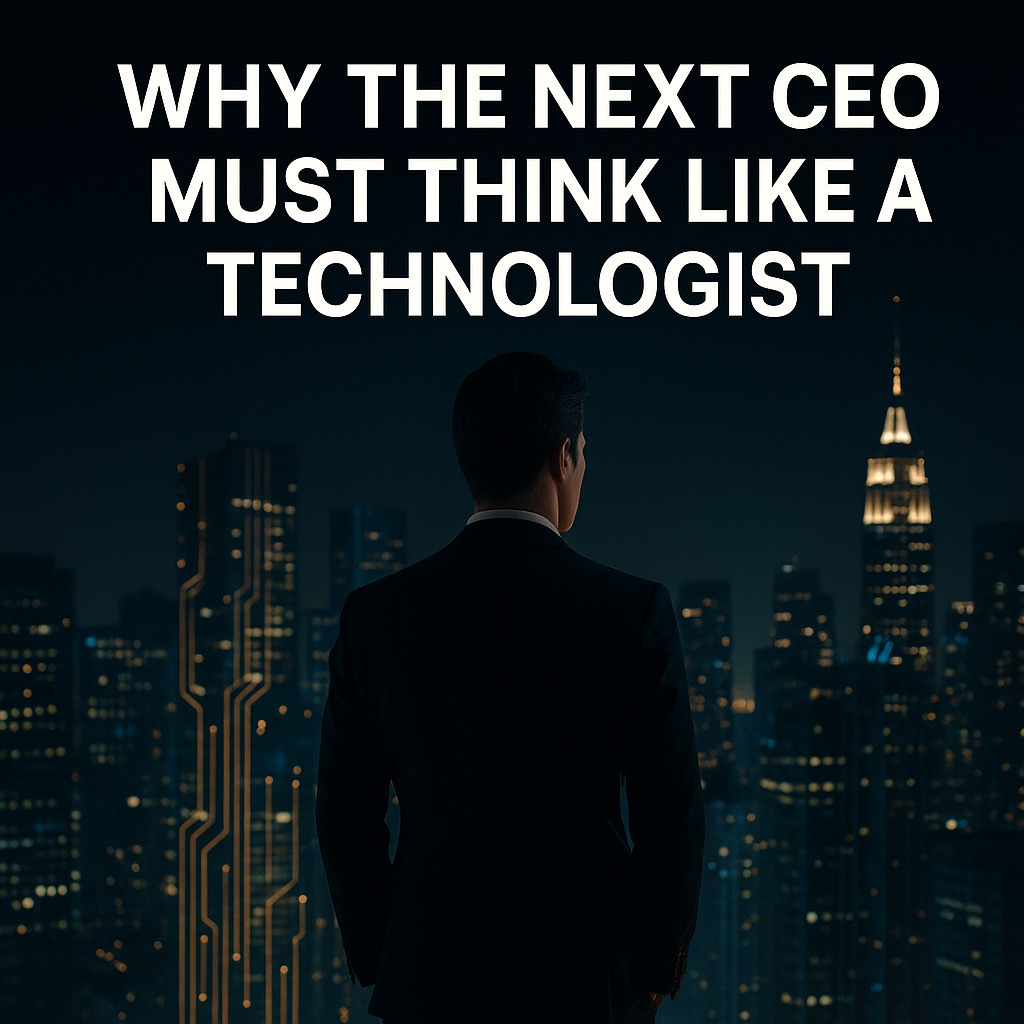Why the Next CEO Must Think Like a Technologist
In today’s hyper-connected, AI-powered economy, business fundamentals are being rewritten in real time. Yet one truth is becoming clearer every quarter: the CEO of the future must think like a technologist—or risk becoming irrelevant.
Too many executive leaders still treat technology as a back-office function, relying on CTOs to “handle the tech stuff.” That mindset is no longer sustainable. Technology has become the business. It shapes strategy, customer engagement, growth, and survival.
A Wake-Up Call to the C-Suite
Look at the companies winning in today’s economy: Tesla, Airbnb, Stripe, Square, Shopify.
None of these are just tech companies. They are strategic machines built on technical architecture, led by people who think in systems, platforms, and future use cases. They are engineered for scale because their leadership thinks in code—even if they don’t write it.
In my two decades working across continents with startups, Fortune 500 firms, and investors, I’ve seen a recurring pattern: companies who win in disruptive markets are those where executive leadership embraces tech literacy and future-first strategy.
From Legacy Mindset to Platform Thinking
The old-school CEO focused on organizational charts and quarterly reports. The next-generation CEO asks questions like:
How can we embed AI into our core product flow?
What does tokenization mean for our asset liquidity and customer incentives?
Can our current infrastructure scale globally via cloud-native microservices?
Are we future-proofed against cyber and regulatory risks?
They don’t defer these questions. They lead them.
Why This Matters Now
Let’s break this down by core areas:
🧠 AI – Every department, from HR to product development, will be reshaped by machine learning. CEOs must grasp the trade-offs and ethics of automation, personalization, and predictive data models.
🔐 Cybersecurity – A CEO without cyber fluency is a brand risk. Data breaches are no longer IT problems; they’re existential business threats.
📈 Blockchain & Tokenization – Asset ownership, contracts, fundraising, and even customer loyalty are being rewritten. Token models aren’t theoretical—they’re now a strategic option boards need to understand.
🤝 M&A Strategy – Due diligence now includes API integrity, AI IP, smart contract audits, and AI-assisted valuations. Are CEOs equipped to lead that process?
The CEO of the Future = Business Strategist + Systems Thinker
This isn’t about coding—it’s about fluency. The CEO doesn’t need to know how to deploy an LLM or write Solidity contracts. But they must understand what’s possible, and lead teams who can execute at the edge of that potential.
Tomorrow’s CEO will:
Collaborate with engineers as easily as they do with CFOs
Anticipate market disruption before it shows up on the balance sheet
Lead product, data, and platform strategy—not just approve it
Rethink KPIs around user engagement, token dynamics, and real-time analytics
If that sounds more like a product visionary than a traditional executive—it is. That’s the point.
A Final Note: Disruption Rewards the Prepared
In the age of exponential change, legacy thinking is the biggest liability. Organizations need hybrid leaders who can translate innovation into execution. The best-performing companies of the next decade will be built by executives who lead with technological insight, strategic conviction, and global vision.
I work with executives, investors, and boards to bridge this gap between innovation and execution. If your company is preparing for growth, transformation, or disruption—and needs strategic guidance— For consulting engagements and advisory roles, please fill the form at the bottom.





